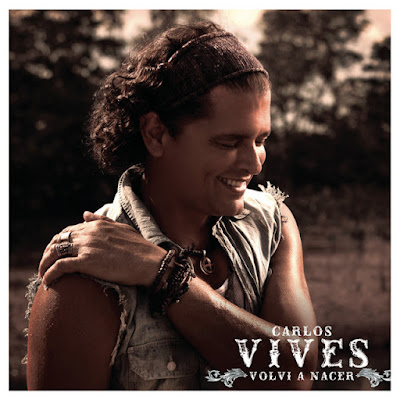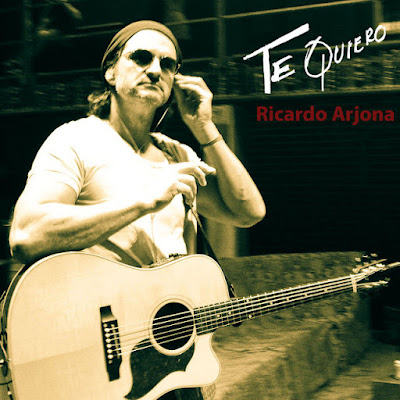13th October, 2012
This is it: the final #1 of the Hot Latin chart as it had been calculated since its beginning in 1986. Despite my ignorant speculation in early entries on this blog, it had always been an airplay chart; commercial singles of Spanish-language pop were uncommon in the U.S. after the 1960s, as label consolidation created pressure to direct consumers toward higher-ticket albums. Where the charts were concerned, radio formats were a rough but workable approximation of audience: if a song was popular in the Black or Latin communities, regardless of actual genre, it showing up on the R&B or Hot Latin charts meant something.
So Billboard shifting, in October 2012, to a streaming-heavy calculation for its flagship genre charts meant that audiences no longer counted. As an infamous illustration, the streaming switchover meant that Macklemore's "Thrift Shop" would hold the #1 spot on the R&B/Hip-Hop chart for months in early 2013, whereas on the R&B/Hip-Hop Airplay chart, which used the old calculation, it peaked at #34. But it had the "hip-hop" tag on streaming services, so that's the bucket it went into, even though the core audience for the music wasn't much embracing it. (And in fact it had more play on rock stations than R&B ones, peaking at #13 on Rock Airplay.)
But the Latin audience, being both more diffuse (Texas, California, New York and Florida all have very different Latin-music histories and cultures, as different as the countries they saw the most immigration from) and coming with a significant language barrier, would be affected differently. I'll be discussing some of those effects in future installments, but the most immediate and obvious would be the virtual disappearance for many years of genre variety from the top of the chart: pending the unexpected, this is the last we will see of accordion-led Colombian vallenato. Urbano -- the useful catch-all term for Latin music derived from hip-hop, dancehall, and electronic dance -- will rule the top of the chart for the rest of the decade, with glacial turnover as whatever song with "Latin" in its metadata is being played most at parties sticks around for months at a time.
Don't get me wrong, that will include a lot of great music. The chart as calculated by airplay gave kind of a false impression: because it combined inputs from widely different audiences (Puerto Ricans and Dominicans in New York, Cubans in Miami, Tejanos in Texas, Chicanos in Los Angeles, not to mention all the rest of the Hispanic diaspora across the country), it actually delivered more genre diversity than individual listeners were likely to experience from their preferred radio stations. Which of course made it ideally suited for my purposes, as a genre-agnostic magpie wanting to get my arms around as much Latin music as possible. But we've already seen how the airplay chart had diminished reggaetón and other forms of urbano ("Gasolina" getting stuck at #17 while a Juanes rock anthem reigned at #1 is the canonical example) -- urbano is going to be some of the most exciting and interesting music of the 2010s and 2020s, so getting to look at it in all its explosions and contradictions is going to be fascinating.
But before that, a farewell to Carlos Vives, who will not, as of this writing, be gracing this travelogue again (the closest he will come is a duet with fellow Colombian Shakira in 2014, which will stall at #2 behind a third Colombian; but that's a ways off yet). The chart that started with the Spanish Rocío Dúrcal and the Mexican Juan Gabriel has seen many shifts in taste and fashion over the course of its young life, and if we had to have a valedictory for the past twenty-six years from someone who has been a regular presence for the past thirteen, you could hardly ask for a better selection. Always pleasant to hear from, with one foot firmly planted in the soil of local tradition but one eye always cocked to the horizon for the freshness and modernity of international pop success, he's a Latin Grammy favorite who has aged gracefully into an upbeat, avuncular sound that challenges no boundaries and invites everyone into the jolly, communal celebration.
"Volví a Nacer" (I was born again) is a love song said to be inspired by Vives' second wife, Claudia Elena Vásquez, who married him in 2008. Like so many of the love songs we've looked at over the years, it's replete in hyperbolic expressions of devotion and achievement for the sake of the beloved, the kind of vows a medieval knight-errant would recognize as proper to his lady love. Of course the religious symbolism of the title is present (that too is very medieval, which is another way of saying Catholic, which is another way of saying Latin), but it's submerged in the more human anxiety of whether the lover will remain with him.
The music, swelling from piano ballad to vallenato jig to rock & roll guitar heroics, is similarly a wide tent, with massed voices in the chorus just begging for a singalong. If it doesn't quite convince me to sing along here in the fall of 2024, that may not be its fault: the more muted, paranoid atmostphere of the 2020s can't help being a little skeptical of populist bonhomie. While I don't doubt Vives' sincerity, it's not just the sturdy, gospelly uplifting chords that end up sounding a little naïve.








